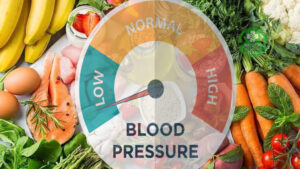Living with diabetes can be challenging, but with the right approach to diet and nutrition, you can manage your condition and lead a healthy, fulfilling life. Making informed choices about the foods you eat is crucial to maintaining stable blood sugar levels and preventing complications. In this article, we will explore a variety of delicious and nutritious foods that are suitable for individuals with diabetes. From whole grains to lean proteins, we will provide you with a comprehensive guide to creating a balanced and diabetes-friendly diet.
The Importance of a Diabetes-Friendly Diet
Before we delve into specific foods, it is essential to understand why a diabetes-friendly diet is crucial. When you have diabetes, your body has difficulty regulating blood sugar levels. This can lead to a variety of complications, including cardiovascular disease, kidney damage, and nerve damage. By adopting a diet that focuses on controlling blood sugar levels, you can mitigate these risks and improve your overall health.
A diabetes-friendly diet typically includes foods that are low in carbohydrates, high in fiber, and low in unhealthy fats. This combination helps to stabilize blood sugar levels, reduce the risk of heart disease, and promote weight management. Additionally, incorporating a variety of foods from different food groups ensures that you receive all the essential nutrients your body needs to function optimally.
1. Whole Grains
Whole grains are an excellent choice for individuals with diabetes as they are rich in fiber and have a lower glycemic index compared to refined grains. The fiber content in whole grains slows down the absorption of glucose into the bloodstream, preventing spikes in blood sugar levels. Examples of whole grains include:
- Brown rice
- Quinoa
- Oats
- Barley
- Whole wheat
These whole grains can be incorporated into a variety of dishes, such as salads, stir-fries, and soups, providing both flavor and texture to your meals.
2. Lean Proteins
Proteins are an essential component of any balanced diet, especially for individuals with diabetes. Incorporating lean sources of protein into your meals can help regulate blood sugar levels and promote satiety. Some examples of lean proteins include:
- Skinless chicken or turkey
- Fish, such as salmon or tuna
- Legumes, like lentils and chickpeas
- Tofu or tempeh
These protein sources are not only low in unhealthy fats but also rich in important nutrients like omega-3 fatty acids and fiber. Including them in your meals can help you maintain a healthy weight and reduce the risk of heart disease.
3. Non-Starchy Vegetables
Non-starchy vegetables are an excellent choice for individuals with diabetes as they are low in carbohydrates and high in fiber. These vegetables have a minimal impact on blood sugar levels while providing essential vitamins and minerals. Some examples of non-starchy vegetables include:
- Spinach
- Kale
- Broccoli
- Cauliflower
- Green beans
These vegetables can be enjoyed raw in salads, steamed, or sautéed as a side dish. They add color, flavor, and texture to your meals while providing important nutrients that support overall health.
4. Healthy Fats
Contrary to popular belief, not all fats are bad for individuals with diabetes. In fact, incorporating healthy fats into your diet can have numerous health benefits, including improved blood sugar control and reduced inflammation. Some examples of healthy fats include:
- Avocados
- Nuts and seeds
- Olive oil
- Fatty fish, such as salmon or mackerel
These fats are rich in omega-3 fatty acids, which have been shown to reduce the risk of heart disease and improve insulin sensitivity. However, it is important to consume these fats in moderation, as they are still high in calories.
5. Low-Fat Dairy Products
Low-fat dairy products are a great source of calcium and protein for individuals with diabetes. However, it is important to choose low-fat or fat-free options to avoid consuming excessive calories and unhealthy fats. Some examples of low-fat dairy products include:
- Skim milk
- Low-fat yogurt
- Low-fat cottage cheese
- Reduced-fat cheese
These dairy products can be consumed on their own or incorporated into various recipes, such as smoothies, soups, and casseroles. They provide important nutrients while keeping your blood sugar levels stable.
6. Fruits
Fruits are a delicious and nutritious addition to any diabetes-friendly diet. While fruits do contain natural sugars, they are also rich in fiber, vitamins, and minerals. Opting for whole fruits instead of fruit juices or processed fruit products is recommended, as whole fruits contain more fiber and have a lower glycemic index. Some fruits that are suitable for individuals with diabetes include:
- Apples
- Berries, such as strawberries and blueberries
- Citrus fruits, like oranges and grapefruits
- Pears
- Kiwi
These fruits can be enjoyed as a snack, added to salads, or used as a natural sweetener in recipes. Remember to consume them in moderation and consider portion sizes to avoid excessive carbohydrate intake.
7. Herbs and Spices
Herbs and spices are not only a great way to add flavor to your meals but also offer additional health benefits. Some herbs and spices have been shown to help regulate blood sugar levels and improve insulin sensitivity. Examples of herbs and spices that are beneficial for individuals with diabetes include:
- Cinnamon
- Turmeric
- Ginger
- Garlic
- Oregano
Incorporating these herbs and spices into your cooking can enhance the taste of your meals while providing potential health benefits. However, it is important to use them in moderation and avoid excessive sodium intake if you have high blood pressure.
Conclusion
While managing diabetes can be challenging, making informed choices about your diet can significantly improve your overall health and well-being. By incorporating whole grains, lean proteins, non-starchy vegetables, healthy fats, low-fat dairy products, fruits, and herbs and spices into your meals, you can create a diabetes-friendly diet that supports stable blood sugar levels and reduces the risk of complications. Remember to consult with a healthcare professional or registered dietitian to tailor your diet to your specific needs and preferences.
FAQs
1. Can I still enjoy desserts if I have diabetes?
Yes, individuals with diabetes can still enjoy desserts, but it is important to choose healthier options and consume them in moderation. Opt for desserts that are low in added sugars and high in fiber, such as fruit-based desserts or desserts made with sugar substitutes.
2. Are artificial sweeteners safe for individuals with diabetes?
Yes, artificial sweeteners can be a safe alternative to sugar for individuals with diabetes. They provide sweetness without affecting blood sugar levels. However, it is important to use them in moderation and follow the recommended daily limits.
3. How can I incorporate more vegetables into my meals?
You can incorporate more vegetables into your meals by adding them to dishes like stir-fries, soups, salads, and omelets. You can also experiment with new vegetable recipes or try roasting vegetables for added flavor.
4. Can I still eat out at restaurants if I have diabetes?
Yes, you can still eat out at restaurants if you have diabetes. However, it is important to make healthy choices and be mindful of portion sizes. Look for menu items that are grilled, steamed, or baked, and ask for dressings and sauces on the side.
5. How often should I check my blood sugar levels?
The frequency of blood sugar testing may vary depending on your individual needs and treatment plan. Consult with your healthcare professional to determine how often you should check your blood sugar levels and what your target ranges should be.
Summary
A diabetes-friendly diet is essential for individuals with diabetes to maintain stable blood sugar levels and reduce the risk of complications. By incorporating whole grains, lean proteins, non-starchy vegetables, healthy fats, low-fat dairy products, fruits, and herbs and spices into your meals, you can create a well-rounded and nutritious diet. Remember to consult with a healthcare professional or registered dietitian to tailor your diet to your specific needs and preferences. With the right approach to nutrition, you can successfully manage your diabetes and enjoy a healthy, fulfilling life.




